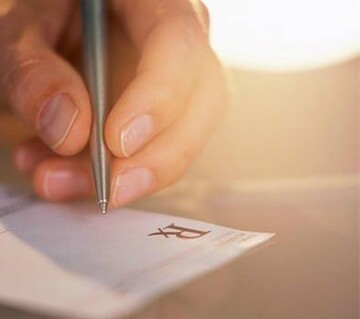Oral Surgery
Before any oral surgical procedure you should:
- Eat a light and easily digestible meal the night before your appointment
- If you are going to be sedated, DO NOT eat or drink anything on the day of your appointment
- Wear short sleeves and loose-fitting clothing
- Arrange for a relative or friend to stay in the office with you and be ready to drive you home
- You may NOT drive a car on the day of the surgery if you are to be sedated!
Fold a piece of clean gauze into a pad thick enough to bite on and place directly on the extraction site. Apply moderate pressure by closing the teeth firmly over the pad. Maintain this pressure for about 30 minutes. If the pad becomes soaked, replace it with a clean one as necessary. Do not suck on the extraction site (as with a straw). A slight amount of blood may leak at the extraction site until a clot forms. However, if heavy bleeding continues, call your dentist. (Remember, though, that a lot of saliva and a little blood can look like a lot of bleeding).
The Blood Clot
After an extraction, a blood clot forms in the tooth socket. This clot is an important part of the normal healing process and therefore activities that might disturb the clot should be avoided. Here's how to protect it:
1. Do not smoke, rinse your mouth vigorously or drink through a straw for 24 hours. These activities create suction in the mouth, which could dislodge the clot and delay healing.
2. Do not clean the teeth next to the healing tooth socket for the rest of the day. You should, however, brush and floss your other teeth thoroughly and gently rinse your mouth afterwards.
3. Limit strenuous activity for 24 hours after the extraction. This will reduce bleeding and help the blood clot to form. Get plenty of rest.
4.If you have sutures, your dentist will instruct you when to return to have them removed.
Your dentist may prescribe medication to control pain and prevent infection. Use it only as directed. If the medication prescribed does not seem to work for you, do not increase the dosage. Please call your dentist immediately if you have prolonged or severe pain, swelling, bleeding, or fever.
Swelling Pain
After a tooth is removed, you may have some discomfort and notice some swelling. You can help reduce swelling and pain by applying cold compresses to the face. An ice bag or cold, moist cloth can be used periodically. Ice should be used only for the first day. Apply heat the following day if needed. Be sure to follow your doctor's instructions.
Diet
After the extraction, drink lots of liquids and eat soft, nutritious foods. Avoid alcoholic beverages and hot liquids. Begin eating solid foods the next day or as soon as you can chew comfortably. For about two days, try to chew food on the side opposite the extraction site. If you are troubled by nausea and vomiting call your dentist for advice.
Rinsing
The day after the extraction, gently rinse your mouth with warm salt water (teaspoon of salt in an 8 oz. glass of warm water). Rinsing after meals is important to keep food particles away from the extraction site. Do not rinse vigorously!
Bone grafting is commonly performed by an oral and maxillofacial surgeon to replace or augment bone in areas of tooth loss. Bone grafting to the jaws and facial structures may be necessary in a wide variety of scenarios. The most common bone grafts are facial skeleton and jaw procedures. Other common procedures include tooth extraction site graft, bone graft reconstruction and for a sinus lift. Shrinkage of bone often occurs when a tooth is lost due to trauma, severe caries, or periodontal disease. Additionally, bone loss may have already occurred due to infection or pathology around a tooth. There are many artificial biocompatible bone substitutes available; however, the best material for a bone graft is your own bone, which most likely will come from your chin, the back part of your lower jaw or your hip bone. The hip is considered to be a better source because the hip bone has a lot of marrow, which contains bone-forming cells. There are also synthetic materials that can be used for bone grafting. Most bone grafts use a person's own bone, possibly in combination with other materials.
To place the removed bone in the recipient site, little holes are drilled in the existing bone to cause bleeding. This is done because blood provides cells that help the bone heal. The block of bone that was removed will be anchored in place with titanium screws. A mixture of the patient's bone marrow and some other bone-graft material will then be placed around the edges of bone block. Finally, a membrane is placed over the area and the incision closed.
The bone graft will take about 6 to 12 months to heal before dental implants can be placed. At that time, the titanium screws used to anchor the bone block in place will be removed before the implant is placed.
Crown lengthening is a surgical procedure that re-contours the gum tissue and often the underlying bone of a tooth. Crown lengthening is often for a tooth to be fitted with a crown. It provides necessary space between the supporting bone and crown, which prevents the new crown from damaging bone and gum tissue.
Pre-surgical
Q: Is there a food and drink restriction prior to surgery?
A: If treatment calls for the patient to be sedated then yes there are food and/or drink restriction. The patient must not consume anything, including water for 6-8 hours prior to surgery.
Q: Will antibiotics be prescribed prior to surgery?
A: We commonly use antibiotics to kill bacteria found in the mouth, which will also prevent infection after treatment, particularly with the placement of dental implants immediately after extracted teeth. The specific drug used depends on the medical profile and well being of the patient and the type of treatment.
Q: Do I need to avoid certain medications?
A: It is important to discuss all medication with Denver Dental Specialties, PLLC during your pre-surgical consultation. In most cases medication should be continued unless specifically instructed to withhold them. Typically Plavix, Aspirin, Coumadin and other types of blood thinners can also be continued. When necessary Denver Dental Specialties, PLLC will consult with your physician to safely manage your medications.
Q: Are the rules different for ORTHOGNATIC SURGERY different from tooth extractions of dental implant placement?
A: Yes, very different. Patients who are undergoing surgical procedures on only one jaw usually go home the same day. Patients who are having surgery on both jaws will generally stay overnight. Generally it is necessary to wire the jaws together after orthognatic surgery. In general, the jaws are immobilized securely with rubber bands for the first 1-2 weeks and then loosely for an additional 3-5 weeks. It is very important to discontinue any medication which are “blood thinners†or which may increase your tendency to bleed. Please stop taking the following medications at least 2 weeks before surgery. Denver Dental Specialties, PLLC will provide specific instructions prior to your surgery date.
Surgery
Q: Will anesthesia be used?
A: Denver Dental Specialties, PLLC will discuss your anesthesia options. Our goal is to provide minimal discomfort as possible.
Q: How is the anesthesia administered?
A: Depending upon your treatment we may administer a local anesthesia such as lidocaine or nitrous oxide. For a more involved treatment we may recommend an oral sedation or intravenous sedation.
Q: What do I need to be aware of before intravenous sedation?
A: You may not have anything to eat or drink (including water) for eight (8) hours prior to the appointment. No smoking at least 12 hours before surgery. Ideally, cut down or stop smoking as soon as possible prior to the day of surgery. A responsible adult must accompany the patient to the office, remain in the office during the procedure, and drive the patient home. The patient should not drive a vehicle or operate any machinery for 24 hours following the anesthesia experience. Please wear loose fitting clothing with sleeves which can be rolled up past the elbow, and low-heeled shoes. Contact lenses, jewelry, and dentures must be removed at the time of surgery. Do not wear lipstick, excessive makeup, or nail polish on the day of surgery. If you have an illness such as a cold, sore throat, stomach or bowel upset, please notify the office. If you take routine oral medications, please check with Denver Dental Specialties, PLLC prior to your surgical date for instructions.
Q: Will my vital signs be monitored during and after treatment?
A: Denver Dental Specialties, PLLC and/or one of their highly trained surgical assistants will continuously monitor your vital signs.
Q: How long will the surgery take?
A: The length of surgery depends on your treatment. Some surgery's are less than 30 minutes, while other procedures may take considerably longer. Denver Dental Specialties, PLLC will provide you with the estimated time of surgery at your pre-surgical consultation.
Q: Will there be a lot of bleeding with a tooth extraction?
A: It's important for a blood clot to form to stop the bleeding after a tooth extraction. You will be asked to bite on a gauze pad for 30-45 minutes immediately after the extraction. If the bleeding or oozing still persists, place another gauze pad and bite firmly for another 30 minutes. You may have to do this several times. After the blood clot forms, it is important not to disturb or dislodge the clot as it aids healing. Do not rinse vigorously, suck on straws, smoke, drink alcohol or brush teeth next to the extraction site for 72 hours. These activities will dislodge or dissolve the clot and retard the healing process. Limit vigorous exercise for the next 24 hours as this will increase blood pressure and may cause more bleeding from the extraction site.
Post Surgery
Q: How long is the on-site recovery before I can leave the office?
A: Plan to stay in our recovery room for at least 20 minutes if sedation was involved, or until Denver Dental Specialties, PLLC is satisfied that you are recovered sufficiently to go home. If your procedure required sedation you must be completely alert before leaving the office for home. You must have a ride home. You may not drive yourself. It is recommend that you do not drive for a minimum 24 hours after surgery.
Q: Will you prescribe antibiotics and pain medication?
A: Procedure and patient health are determining factors of what antibiotic and/or medication will be prescribed. Call the office if the medication does not seem to be working. If antibiotics are prescribed, continue to take them for the indicated length of time, even if signs and symptoms of infection are gone. Drink lots of fluid and eat nutritious soft food on the day of the extraction. You can eat normally as soon as you are comfortable. Dr. Brown will discuss what, when, how long and dosage with you in both the pre-surgery and post surgery interviews.
Recovery
Q: How long will I be off of work/out of school?
A: Depending on the extent of the procedure and type of sedation you may resume work and a normal life style anywhere from a few hours to a few days. It is important to resume your normal dental routine after 24 hours. This should include brushing and flossing your teeth at least once a day. This will speed healing and help keep your mouth fresh and clean. After a few days you will feel fine and can resume your normal activities. If you have heavy bleeding, severe pain, continued swelling for 2-3 days, or a reaction to the medication, call our office immediately.
Q: Will there be swelling or facial bruising?
A: After the tooth is extracted, you may feel some pain and experience some swelling. An ice pack or an unopened bag of frozen peas or corn applied to the area will keep swelling to a minimum. Take pain medications as prescribed. The swelling usually subsides after 48 hours. In some treatments there may be some minor bruising; however, in procedures such as dental implant placement ordinarily there is no bruising seen. For teeth removal or jaw procedures, women and/or very light skinned patients may experience slight bruising. Taking blood thinner will help reduce bruising. It is, however, not uncommon to have a black eye or discolored cheek or neck following extensive procedures. Denver Dental Specialties, PLLC will discuss what bruising if any would be related to your procedure treatment.




